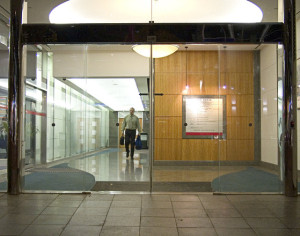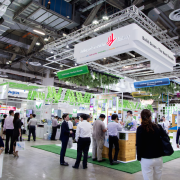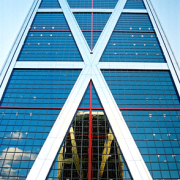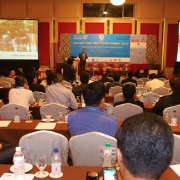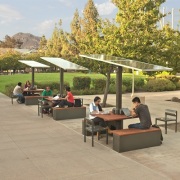COGfx Study Shows Better Thinking, Better Health in Green-Certified Buildings
Working in green-certified buildings was associated with higher cognitive function scores, fewer sick building symptoms and higher sleep quality scores.
Considering all the time we spend at work, have you ever wondered if the building you are working in is healthy? Or, could make you think better, or be more productive?
Researchers at Harvard T.H. Chan School of Public Health and SUNY Upstate Medical University didn’t just wonder, they set out to answer those questions. Studying 109 workers at 10 buildings in 5 cities across the U.S., they discovered that working in green-certified buildings was associated with higher cognitive function scores, fewer sick building symptoms and higher sleep quality scores.
The study builds on the team’s 2015 COGfx Study– COGfx is shorthand for your brain’s cognitive function – which found significantly higher cognitive function test scores for office workers in a simulated green building environment with enhanced ventilation compared to a conventional building environment.
In the new study, presented pre-publication at the U.S. Green Building Council’s annual Greenbuild conference in L.A., employees in high-performing, green-certified buildings had 26 percent higher cognitive function test scores than those in similarly high-performing buildings that were not green certified, even after controlling for other potential explanatory factors. Among the findings, participants had:
- 73 percent higher crisis response scores
- 44 percent higher applied activity level scores, which reflect ability to gear decision- making toward overall goals
- 38 percent higher focused activity level scores, which reflect capacity to pay attention to tasks at hand
- 31 percent higher strategy scores
In addition to these statistically significant findings, the study also found that employees reported 30 percent fewer sick building symptoms and had 6 percent higher sleep quality scores compared to those working in high-performing buildings that were not green-certified, indicating that benefits of green buildings may extend beyond the workday.
“Certified green buildings not only deliver environmental benefits, they can have positive impacts on the productivity and thinking of the people in those buildings. That’s a powerful combination that can accelerate the green building movement globally,” said John Mandyck, Chief Sustainability Officer, United Technologies.
Based on their latest findings, the research team believes a holistic approach is needed. “We’re advocating for what we call Buildingomics – a new approach that examines the totality of factors in the building-related environment,” said Dr. Joseph Allen, Assistant Professor of Exposure Assessment Science at the Harvard T.H. Chan School of Public Health, Director of the Healthy Buildings Program at the Center for Health and the Global Environment at Harvard Chan School, and Principal Investigator for the study.
“Through Buildingomics’ multi-disciplinary approach, we aim to better understand the factors that influence health in buildings and unlock the ability to optimise buildings for improved cognitive function and health,” said Dr. Allen.
The full report – “The Impact of Working in a Green Certified Building on Cognitive Function and Health” – will be made available HERE and HERE.
Follow the discussion on Twitter using #TheCOGfxStudy.


